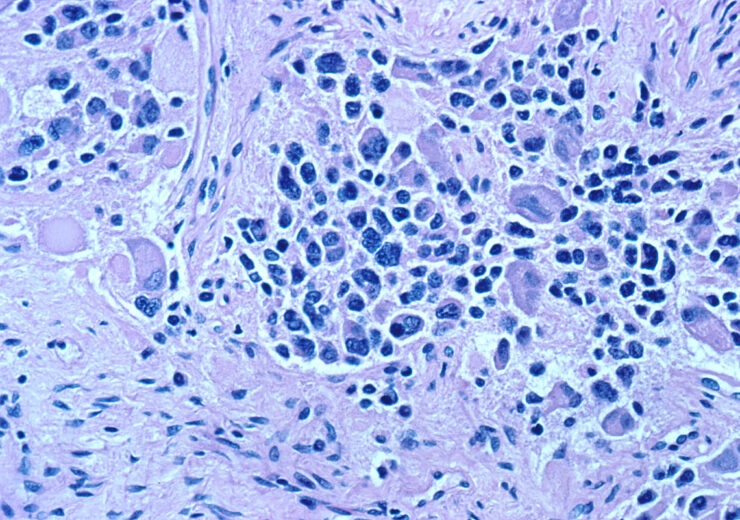Danyelza is said to be a recombinant humanised, monoclonal antibody that targets the ganglioside GD2, highly expressed in several neuroectoderm-derived tumours and sarcomas

A microscopic view of ganglioneuroblastoma. (Credit: Filip em from Wikimedia Commons)
Y-mAbs Therapeutics has received the marketing authorisation for Danyelza (naxitamab-gqgk) 40mg/10mL injection from the Brazilian Health Regulatory Agency, Agência Nacional de Vigilância Sanitária (Anvisa) to treat high-risk neuroblastoma.
Y-mAbs Therapeutics, a biopharmaceutical company engaged in the production of antibody therapeutics for cancer treatment, will market Danyelza through its South American partner Adium Pharma.
Danyelza is said to be a recombinant humanised, monoclonal antibody. It targets the ganglioside GD2, highly expressed in several neuroectoderm-derived tumours and sarcomas.
According to the biopharmaceutical company, the antibody is dosed to patients three times a week and the treatment is repeated every four weeks.
Y-mAbs Therapeutics founder, president and interim CEO Thomas Gad said: “Today is an important day for children living with refractory/relapsed high-risk neuroblastoma in Brazil.
“It’s very exciting to see this treatment approved, creating access to DANYELZA in Brazil from the joint efforts by our partner Adium and the development team at Y-mAbs.
“We continue to focus on the expansion of the Danyelza in other jurisdictions, working to provide access to children living with refractory or relapsed neuroblastoma.”
Danyelza was developed by researchers at Memorial Sloan Kettering Cancer Centre (MSK). It is exclusively licensed by MSK to Y-mAbs.
In the US, the combination of Danyelza and granulocyte-macrophage colony-stimulating factor (GM-CSF) was cleared by the US Food and Drug Administration (FDA) in November 2020.
It was approved under accelerated approval guidelines based on the duration of the response and the overall response rate.
The combination was indicated for the treatment of relapsed or refractory high-risk neuroblastoma in the bone or bone marrow in paediatric patients of age one year and above.
Additionally, it was approved for adult patients, who have shown a partial or minor response to previous therapy or have stable disease.
In August last year, the biopharmaceutical company and Takeda Israel received approval from the Israeli Ministry of Health for Danyelza to treat high-risk neuroblastoma.
